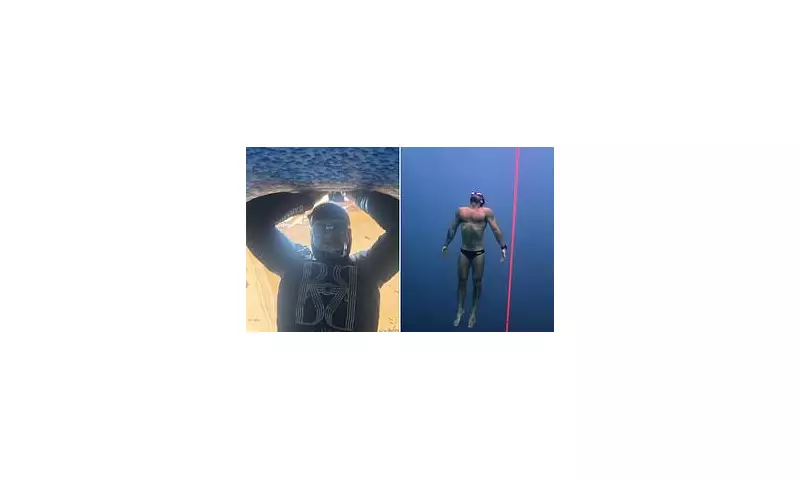
In a display of almost superhuman willpower and physiological control, freediving champion Budimir Šobat has redefined the limits of human capability. The Croatian athlete, known as 'Buda', has officially shattered his own Guinness World Record for static apnea, holding his breath underwater for a mind-boggling 24 minutes and 37 seconds.
The Ultimate Test of Mind Over Matter
The record-breaking attempt was not for the faint of heart. Submerged in the chilly 10°C (50°F) waters of a hotel pool in Zagreb, Šobat remained perfectly still, conserving every ounce of energy and oxygen. The entire event was streamed live, with viewers around the world watching in awe as the seconds ticked by into previously unimaginable territory.
This discipline, known as static apnea, is considered one of the most mentally gruelling sports in the world. It's a pure battle against the body's most primal instincts.
Pushing Beyond Previous Limits
Šobat didn't just break the record; he demolished it. His new time surpasses his previous Guinness-certified record of 24 minutes and 11 seconds, set in 2021. This new milestone adds a full 26 seconds to that already unbelievable time, a significant leap in a field where improvements are measured in mere seconds.
A History of Record-Smashing Feats
This isn't Šobat's first foray into the record books. His journey to this moment includes:
- A previous Guinness World Record of 24 minutes and 11 seconds.
- Mastering the techniques of oxygen conservation and mental fortitude.
- Years of dedicated training to expand lung capacity and control the mammalian dive reflex.
The Science of Survival
How is such a feat possible? Freedivers like Šobat train their bodies to trigger the mammalian dive reflex, a set of physiological responses that conserve oxygen. This includes:
- Bradycardia: A dramatic slowing of the heart rate, sometimes to as low as 30 beats per minute.
- Peripheral Vasoconstriction: Blood vessels in the extremities constrict, directing oxygen-rich blood to the vital organs, especially the heart and brain.
- Blood Shift: Plasma from blood moves into the lung cavities to prevent them from collapsing under immense water pressure.
Šobat's achievement is more than just a number; it's a testament to the incredible potential of the human body when pushed by an iron will. It stands as a beacon of what is possible at the very frontier of human endurance.





